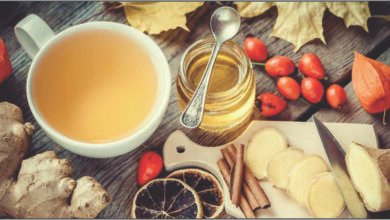
What is the simplest and easiest way to make high Fiber Foods for Babies? Does it help your baby’s constipation?
High Fiber foods are a significant supplement that keeps your baby’s stomach in a healthy condition. As parents, we attempt our best to design our children’s diet so they get all the supplements and nutrients they need. We add iron, calcium, and solid fats in our babies’ food diet plan. However, one nutrient that the parents always miss for their baby is – fiber.

However, High Fiber Foods for Babies have multiple health benefits. It also helps in constipation, digestion and helps battle conditions like heart ailment in small babies.
Most kids get just 50% of the prescribed everyday fiber consumption. Just by including certain foods into their everyday diet, you will have the option to rapidly expand the measure of solid fiber your kids are getting every day. Increment the measure of fiber your children are eating gradually to prevent indigestion and constipation. As you include high Fiber Foods for babies body will change by the new amount.
The clearest advantages of fiber have to do with digestion. At the point when combined with great hydration, fiber keeps the stomach related tract moving along as it should. This prevents, and can even treat, bloating so your baby gets a quality sleep at night without crying with stomach pain.
Types of Fibre
Fiber is the indigestible piece of the plant-based nutrients we eat, similar to natural products, vegetables, cereals, and grains. There are two sorts of fiber – solvent and insoluble.

Solvent Fiber can disintegrate in water. It hinders digestion, causing your baby to feel more full. Dissolvable fiber is found in oats, grain, products of the soil like beans or peas.
Insoluble fiber doesn’t break down in the water. It adds mass to stool and pushes it through the stomach tract, facilitating assimilation from the body. Insoluble fiber is found in wheat and grains.
The two sorts of fiber are significant for an improved digestive tract for your baby. Alongside the perfect measure of water, it guarantees simple and normal bowel movement for your baby.
How Much Fiber Do Babies Need?

There are no exact suggested measures of dietary fiber for babies younger than one year. Child specialists prescribe five grams of fiber daily for children below the age of two years. It is ideal to consult a paediatric nutritionist to know the exact measure of fiber for your babies.
Health Benefits of High Fibre Foods for Babies:

- Improves Constipation
- Clear Bowel
- Improve Digestive Tract
- Prevents Heart Disease
- Lower Bad Cholesterol
- Prevents Obesit
Lack of Fibre in Babies Leads To:
- Dry and Hard Stool
- Imbalance in Bowel Movement
- Sudden Abdominal Pain
- Low Appetite
- Crying while passing stool
High Fibre Foods for Babies:
It is always advisable to consult with your child’s doctor or a good paediatric nutritionist to know if your baby is allergic to any food habit or not. Once the doctor approves, you can choose over a ton of food items from the high fibre food category and adding it to their daily diet gradually.
Now, let’s look at the 20 high fibre foods babies:
Peas
 Green peas are one of the most flexible vegetables accessible – you can without much of a stretch add them to stews, soups, purees, and substantially more! Green peas are an extraordinary wellspring of protein, and a large portion of a cup of cooked green peas gives 4.4 grams of fiber.
Green peas are one of the most flexible vegetables accessible – you can without much of a stretch add them to stews, soups, purees, and substantially more! Green peas are an extraordinary wellspring of protein, and a large portion of a cup of cooked green peas gives 4.4 grams of fiber.
Mango
 Mango is not only appealing in taste and has great sweetness but also is a high source of fibre. They are often served to the baby in the form of mango juice, mango puree, mango yogurt, mango porridge, mango kheer, and mango soup.
Mango is not only appealing in taste and has great sweetness but also is a high source of fibre. They are often served to the baby in the form of mango juice, mango puree, mango yogurt, mango porridge, mango kheer, and mango soup.
Oatmeal
 A bowl of cooked oatmeal can always add a good fibre into your baby’s diet. To make it more tasteful and attractive for your baby to eat by adding some crushed nuts, crushed berries, crushed strawberry, honey syrup, raisins, or maple syrup.
A bowl of cooked oatmeal can always add a good fibre into your baby’s diet. To make it more tasteful and attractive for your baby to eat by adding some crushed nuts, crushed berries, crushed strawberry, honey syrup, raisins, or maple syrup.
Berries
 It is a good source of high fibre which aids in strong brain and stomach development. Berries like blueberry, raspberry, blackberry, and strawberry can be easily added to your baby’s food item.
It is a good source of high fibre which aids in strong brain and stomach development. Berries like blueberry, raspberry, blackberry, and strawberry can be easily added to your baby’s food item.
Carrot
 Carrot is the first and foremost vegetable to be introduced in your baby’s diet. This is a rich source of fibre and can be served as carrot puree, carrot juice, mash carrot, and carrot porridge for your baby.
Carrot is the first and foremost vegetable to be introduced in your baby’s diet. This is a rich source of fibre and can be served as carrot puree, carrot juice, mash carrot, and carrot porridge for your baby.
Whole Grain Cereal
 The first year of your baby is very crucial in all ways. However, a whole-grain cereal is a great source of fibre for your baby with the best health benefits. You can choose barley cereal or a bowl of brown rice cereal into a smooth paste for easy swallowing.
The first year of your baby is very crucial in all ways. However, a whole-grain cereal is a great source of fibre for your baby with the best health benefits. You can choose barley cereal or a bowl of brown rice cereal into a smooth paste for easy swallowing.
Corn
 Corn has a great source of fibre in it which helps in your baby’s healthy growth. You can add mash corn into your baby’s cereal which will again help in easy swallowing giving a great taste to it.
Corn has a great source of fibre in it which helps in your baby’s healthy growth. You can add mash corn into your baby’s cereal which will again help in easy swallowing giving a great taste to it.
Avocado
 Avocado has a creamy texture which is often liked by most babies. It smooth texture in paste form can help in easy to eat. A half avocado comprises of 5 full grams of high fibre in it. This shows how full of nutritious it would be for the healthy growth of your baby.
Avocado has a creamy texture which is often liked by most babies. It smooth texture in paste form can help in easy to eat. A half avocado comprises of 5 full grams of high fibre in it. This shows how full of nutritious it would be for the healthy growth of your baby.
Prunes
 Prunes are a great source of fibre which prevents constipation in your baby. Thus, it works as a natural remedy for the digestive tract to make sure of clear bowel for your baby.
Prunes are a great source of fibre which prevents constipation in your baby. Thus, it works as a natural remedy for the digestive tract to make sure of clear bowel for your baby.
Nut Powder
 Nuts are again a great source of high fibre. Thus, adding some crushed or paste or powder nut into baby’s food can work as a good fat for them. Whole nut can led to choking; however, nut powder can be the best alternative option for them.
Nuts are again a great source of high fibre. Thus, adding some crushed or paste or powder nut into baby’s food can work as a good fat for them. Whole nut can led to choking; however, nut powder can be the best alternative option for them.
Beans
 You can easily get fresh beans from the market which adds as a great supplementary fibre in your baby’s diet. A large portion of a cup of beans contains an incredible 6-9 grams of fiber, making this an absolute necessity to have in your kid’s eating regimen.
You can easily get fresh beans from the market which adds as a great supplementary fibre in your baby’s diet. A large portion of a cup of beans contains an incredible 6-9 grams of fiber, making this an absolute necessity to have in your kid’s eating regimen.
Flaxseed
 Flax seeds are accessible in many general stores nowadays and are fantastically adaptable since they can be added to anything. Also, a tablespoon of flax seeds contains 3 grams of fiber. For your babies, you can crush or grind flax seeds at home and sprinkle over their prepared food meal.
Flax seeds are accessible in many general stores nowadays and are fantastically adaptable since they can be added to anything. Also, a tablespoon of flax seeds contains 3 grams of fiber. For your babies, you can crush or grind flax seeds at home and sprinkle over their prepared food meal.
Millet
 Millet is a traditional dish with great source of high fibre in it. With millet, you can make so many appealing recipes for your baby such as millet porridge, millet rice, and also millet with beetroot.
Millet is a traditional dish with great source of high fibre in it. With millet, you can make so many appealing recipes for your baby such as millet porridge, millet rice, and also millet with beetroot.
Brown Rice
 A cup of brown-colored rice has a fair 3.5 grams of fiber, and goes incredible with every single other food item from vegetables to chicken! So, add some brown rice in the form of boiled liquid rice or mash rice into your baby’s diet.
A cup of brown-colored rice has a fair 3.5 grams of fiber, and goes incredible with every single other food item from vegetables to chicken! So, add some brown rice in the form of boiled liquid rice or mash rice into your baby’s diet.
Pomegranate Seeds
 You can add pomegranate seeds in the form of juice in your baby’s diet. Since it has a rich source of high fibre you cannot skip this item from your baby’s diet. It will help in the prevention of constipation in your baby.
You can add pomegranate seeds in the form of juice in your baby’s diet. Since it has a rich source of high fibre you cannot skip this item from your baby’s diet. It will help in the prevention of constipation in your baby.
Broccoli
 Broccoli for babies can act as a good source of high fibre but sometimes it tends to form a gas. Thus, adding broccoli in your baby’s diet with the right amount and quantity will not create any gas in your baby.
Broccoli for babies can act as a good source of high fibre but sometimes it tends to form a gas. Thus, adding broccoli in your baby’s diet with the right amount and quantity will not create any gas in your baby.
Leafy Greens
 Leafy greens like spinach and turnip are a great sources of high fibre followed by vitamins and iron. These can be served in the form of puree, soup, juice, to your babies.
Leafy greens like spinach and turnip are a great sources of high fibre followed by vitamins and iron. These can be served in the form of puree, soup, juice, to your babies.
Barley
 Barley must be the Superman of high fiber nutrients. With 32 grams of fiber in a cup of cooked barley, it’ll effectively assist the fibre needs of your baby abundantly. It can be served in multiple ways for your babies such as puree, soup, and porridge.
Barley must be the Superman of high fiber nutrients. With 32 grams of fiber in a cup of cooked barley, it’ll effectively assist the fibre needs of your baby abundantly. It can be served in multiple ways for your babies such as puree, soup, and porridge.
Conclusion
However, while presenting new food items for babies, consistently adhere to the 3-day rule. A lot of fiber can cause abdominal pain or gas. When purchasing a food item that professes to be high fiber, read the food label cautiously. Fiber is recorded under ‘Total Carbohydrates’ as ‘Dietary Fiber’. A genuinely high fiber food item ought to have at any rate 3 grams fiber for each serving.
By Aditi Paul






